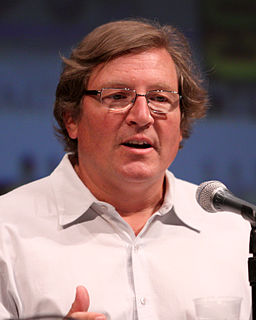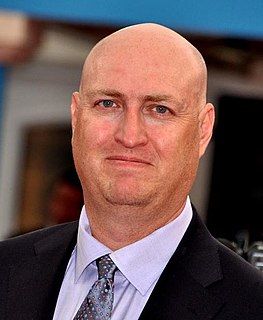A Quote by Jay Roach
When I'm shooting, really the audience I'm thinking the hardest about is that first test screening audience who I want to like the film and that first opening weekend audience.
Related Quotes
If you test Iron Man and that audience doesn't respond well, you can be damn sure that there is something wrong with the movie that you have to address. Because they're expecting a certain amount of action, right? They want a hero. There are certain things that have to be compatible with the way the audience is thinking about it. If you take some other film, like No Country for Old Men, you can end up with all kinds of crazy reactions.
I like the saying: "The world is as you are." And I think films are as you are. That's why, although the frames of a film are always the same - the same number, in the same sequence, with the same sounds - every screening is different. The difference is sometimes subtle but it's there. It depends on the audience. There is a circle that goes from the audience to the film and back. Each person is looking and thinking and feeling and coming up with his or her own sense of things. And it's probably different from what I fell in love with.
The first thing I say when people ask what's the difference [between doing TV and film], is that film has an ending and TV doesn't. When I write a film, all I think about is where the thing ends and how to get the audience there. And in television, it can't end. You need the audience to return the next week. It kind of shifts the drive of the story. But I find that more as a writer than as a director.
Different reactions while film test screening doesn't mean even the audience thinks ambiguity is a bad thing. But if you're asking them right away to start checking things off, they don't know what to do. I think at their best, it applies to when the audience knows what it is. Then, when they say, "Oh, well, I thought it was too boring in blah-blah-blah part," then you better pay attention to it. It's like going for the hamburger. Better be the good hamburger I went for.




































